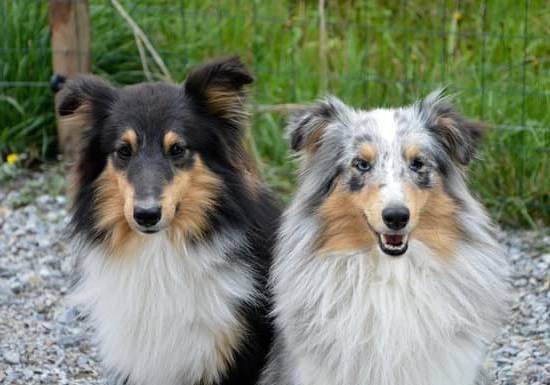When it comes to service dogs, people often think of breeds like the Labrador Retriever or Golden Retriever. But can beagles be trained as service dogs? Beagles are known for their keen sense of smell and intelligence, but are they suitable for this important role? In this article, we will explore the potential of beagles as service dogs and examine their characteristics to see if they are a good fit for this type of work.
Service dogs play a crucial role in assisting individuals with disabilities, whether it’s guiding the visually impaired, alerting those with hearing loss, or providing assistance with mobility and tasks. These highly trained animals make a significant impact on the lives of their owners by providing them with greater independence and support. Understanding the characteristics that make a dog suitable for service work is essential in determining if beagles can excel in this role.
In the following sections, we will delve into the unique traits of beagles and analyze whether they possess the qualities required to serve as assistance animals. We will also explore the training process for service dogs and examine real-life success stories of beagles making a difference in people’s lives. Additionally, we will discuss the challenges and legal considerations associated with using beagles as service dogs, along with alternatives and their respective pros and cons.
Examining the Characteristics of Beagles
Beagles are a popular breed known for their friendly and gentle nature, making them an appealing choice for service dog work. When considering the suitability of Beagles for service work, it’s important to examine their characteristics and traits. Here are some key points to consider when evaluating whether Beagles are suitable for service work:
- Temperament: Beagles are known for their loving and sociable nature, which makes them well-suited for providing emotional support as service dogs.
- Intelligence: Beagles are intelligent dogs and can be trained to perform a variety of tasks, such as retrieving items, opening doors, or providing assistance to individuals with mobility issues.
- Energy Level: Beagles are high-energy dogs that require regular exercise and mental stimulation. While this energy can be channeled into service work, it also means that they need plenty of physical activity to stay healthy and happy.
In addition to these characteristics, Beagles are also known for their strong sense of smell, which can be harnessed in specific service roles such as detecting allergens or medical alerts. However, it’s important to note that not all Beagles will have the temperament or characteristics necessary for successful service work. Each dog is an individual, and their suitability for service work should be assessed on a case-by-case basis.
Overall, while Beagles possess many desirable traits that make them potentially suitable for service work, it’s essential to consider the individual dog’s temperament, energy level, and abilities before determining if they are a good fit for this type of work.
The Training Process
Beagles are known for their friendly and curious nature, which can make them great candidates for service work. However, training a beagle to become a service dog requires patience, dedication, and specialized techniques. It’s important to understand the training process and whether beagles can truly be successful in this role.
Evaluating Temperament and Traits
Before embarking on the training process, it’s essential to evaluate the temperament and traits of the individual beagle. Beagles are known for their strong sense of smell and intelligence, but they can also be easily distracted and independent. These characteristics make them both suitable and challenging for service work. A thorough assessment will help determine if a beagle has the potential to succeed as a service dog.
Specialized Training Techniques
Training a beagle as a service dog requires specialized techniques that cater to their unique traits. Positive reinforcement methods are particularly effective with beagles, as they respond well to praise and rewards. Additionally, focusing on their natural scenting abilities can open up opportunities for roles such as diabetic alert dogs or search and rescue dogs.
The Role of Consistency and Patience
Consistency and patience are key when training any dog, but especially so with beagles. Their independent nature means that they may require more time to master commands and tasks. It’s important for trainers to remain patient and persistent while working with beagles, as their efforts will eventually pay off in the form of a well-trained service dog.
Success Stories
Beagle as a Diabetes Alert Dog
One real-life example of a Beagle excelling as a service dog is in the role of a diabetes alert dog. Beagles have been trained to detect changes in their owner’s blood sugar levels, making them an invaluable support for individuals with diabetes.
These dogs can sense when their owner’s blood sugar is too high or too low, allowing them to take necessary precautions to avoid potential health complications. In some cases, beagles have even been credited with saving their owner’s lives by alerting them to dangerous fluctuations in their blood sugar levels.
Beagle as a Therapy Dog
Another success story comes from Beagles serving as therapy dogs in various settings such as hospitals, nursing homes, and schools. Their friendly and gentle nature, coupled with their ability to provide comfort and emotional support, has made them highly effective in helping individuals cope with physical and mental health challenges. Beagles have shown an exceptional capacity for connecting with people and providing unconditional love and companionship, making them a popular choice for therapy dog work.
Beagle as a Search and Rescue Dog
Beagles have also made strides in the field of search and rescue work. Despite their small size, these dogs possess a strong sense of smell and determination that makes them well-suited for tasks such as finding missing persons or detecting specific scents in various environments. Their agility and tenacity enable them to navigate different terrains effectively, making them valuable assets in search and rescue operations.
These success stories demonstrate that Beagles are indeed capable of being trained as service dogs across a range of roles, showcasing their adaptability, intelligence, and dedication to assisting humans in need.
The Challenges of Training Beagles as Service Dogs
When considering training a beagle as a service dog, it is important to understand the unique challenges that come with this particular breed. Beagles are known for their strong sense of smell and high energy levels, which can both be assets and obstacles in the training process. The following are some of the common challenges that trainers may encounter when working with beagles:
- Scent-driven Distractions: Beagles have a keen sense of smell, which can make them easily distracted by various scents in their environment. This natural instinct to follow scents can make it challenging for them to stay focused on their tasks and responsibilities as a service dog.
- High Energy Levels: Beagles are active and high-energy dogs, requiring regular exercise and mental stimulation. Their boundless energy can sometimes lead to difficulty in maintaining focus during training sessions, which means trainers must find creative ways to keep them engaged.
- Independence and Stubbornness: Beagles are known for their independent nature and stubborn streak, which can make training more challenging compared to other breeds. They may require additional patience and consistency in their training regimen.
Despite these challenges, many beagles have successfully completed service dog training programs and have gone on to change the lives of individuals in need. With the right approach, patience, and commitment, these obstacles can be overcome, allowing beagles to fulfill their potential as reliable service dogs. Each beagle is unique, and understanding their individual traits is key to effectively addressing these challenges during the training process.
The Legalities of Beagles as Service Dogs
The legalities of using Beagles as service dogs involve several key considerations. While the Americans with Disabilities Act (ADA) does not specifically mention any breed requirements for service dogs, it does state that the dog must be trained to perform specific tasks that mitigate the handler’s disability. This means that as long as a Beagle meets these criteria and is able to effectively assist their handler, they can legally qualify as a service dog.
One important legal aspect to consider is public access rights. Under the ADA, individuals with disabilities accompanied by their service dogs are allowed access to all public places including restaurants, hotels, and shops. This extends to those utilizing Beagles as service dogs – if they are properly trained and certified to assist with a disability.
| Legal Considerations | Description |
|---|---|
| Breed Requirements | The ADA does not specify breed requirements but focuses on training and task performance. |
| Public Access Rights | Individuals with disabilities and their Beagle service dogs have legal access to all public places under the ADA. |
| State Regulations | Some states may have additional laws regarding certification or licensing for service dogs. |
Alternatives to Beagles as Service Dogs
Beagles are often considered for service dog work due to their friendly and sociable nature, as well as their keen sense of smell. However, there are some key considerations when it comes to choosing a beagle as a service dog. While they are highly trainable and have been successful in various service roles, there are also some drawbacks to consider.
One potential alternative to using beagles as service dogs is the Labrador Retriever. Labs are one of the most popular breeds used for service work due to their intelligence, friendly disposition, and versatility. They are known for their ability to assist individuals with a wide range of disabilities, including mobility assistance and medical alert tasks.
Another potential alternative is the Golden Retriever, which shares many characteristics with the Labrador Retriever. Golden Retrievers are intelligent, eager to please, and have a gentle temperament, making them well-suited for service work. They are often used as guide dogs for the visually impaired or as therapy dogs for individuals with emotional or psychological needs.
| Alternative Breed | Pros | Cons |
|---|---|---|
| Labrador Retriever | Intelligent, versatile, friendly | Potential health issues such as hip dysplasia |
| Golden Retriever | Gentle temperament, eager to please | Shedding and grooming needs |
Conclusion
In conclusion, while Beagles may not be the typical breed that comes to mind when thinking about service dogs, they have shown great potential in fulfilling this role. Their intelligence, friendly disposition, and strong sense of smell make them well-suited for specific types of service work, such as detecting certain medical conditions or providing emotional support.
The success stories of Beagles as service dogs demonstrate that with the right training and dedication, these lovable hounds can make a significant impact on the lives of individuals in need.
Despite the challenges associated with training Beagles as service dogs, it is clear that with patience and perseverance, these obstacles can be overcome. The unique characteristics of Beagles present both advantages and disadvantages in the realm of service work, but with proper guidance and support from experienced trainers and handlers, these challenges can be managed effectively.
It is important to consider the individual temperament and abilities of each Beagle when determining their suitability for service work, as not every dog will be well-suited for this role.
As we continue to explore the potential of Beagles as service dogs, it is crucial to also consider the legal aspects surrounding their use in this capacity. Understanding the rights and responsibilities associated with employing Beagles as service animals is essential for both handlers and individuals relying on their assistance. Additionally, exploring alternative breeds for service work provides valuable insights into the pros and cons of different options available.
Ultimately, while Beagles may not fit every scenario requiring a service dog, their potential should not be underestimated or overlooked. With proper consideration and training, Beagles can certainly make a meaningful impact as service animals.
Frequently Asked Questions
Would a Beagle Make a Good Service Dog?
Whether or not a Beagle would make a good service dog depends on the specific needs of the individual requiring assistance. Beagles are known for their strong sense of smell and intelligence, which could be beneficial for certain tasks such as detecting allergens or alerting to changes in blood sugar levels.
However, they are also known for being easily distracted and having a tendency to follow their noses, which may not make them the best choice for individuals needing highly focused assistance.
What Dog Breeds Cannot Be Service Dogs?
While most dog breeds can potentially be trained as service dogs, there are some breeds that may have characteristics that make them more challenging for certain types of service work. Breeds that are typically large, aggressive, or have high prey drives may not be suitable for service work.
Additionally, dogs with health issues or physical limitations may not be able to perform the tasks required of a service dog.
Are Beagles Good for Anxiety?
Beagles can be good companions for individuals with anxiety due to their affectionate and gentle nature. Their playful demeanor and high energy level can also provide comfort and distraction during times of stress.
However, it’s important to note that every dog is unique, so while some Beagles may excel at providing emotional support, others may not possess the temperament needed for this type of work.

Welcome to the blog! I am a professional dog trainer and have been working with dogs for many years. In this blog, I will be discussing various topics related to dog training, including tips, tricks, and advice. I hope you find this information helpful and informative. Thanks for reading!





